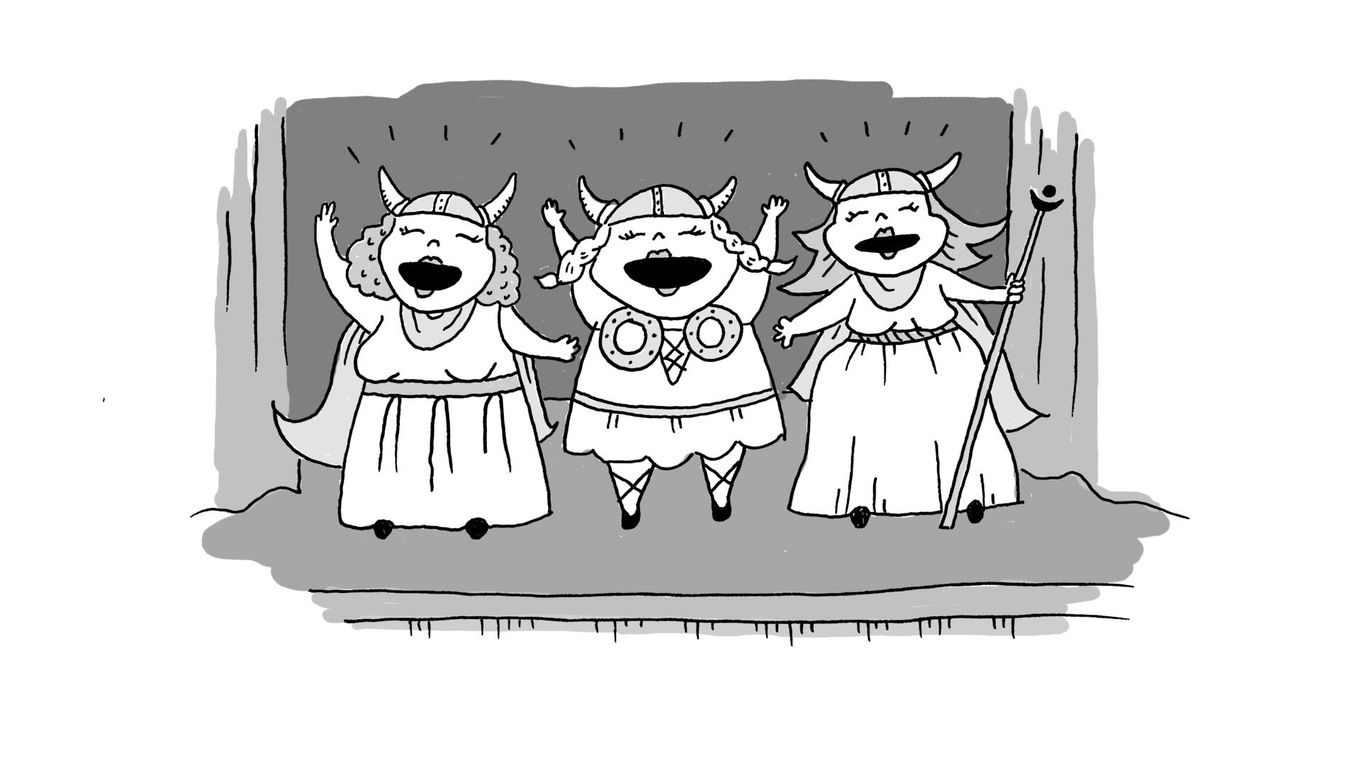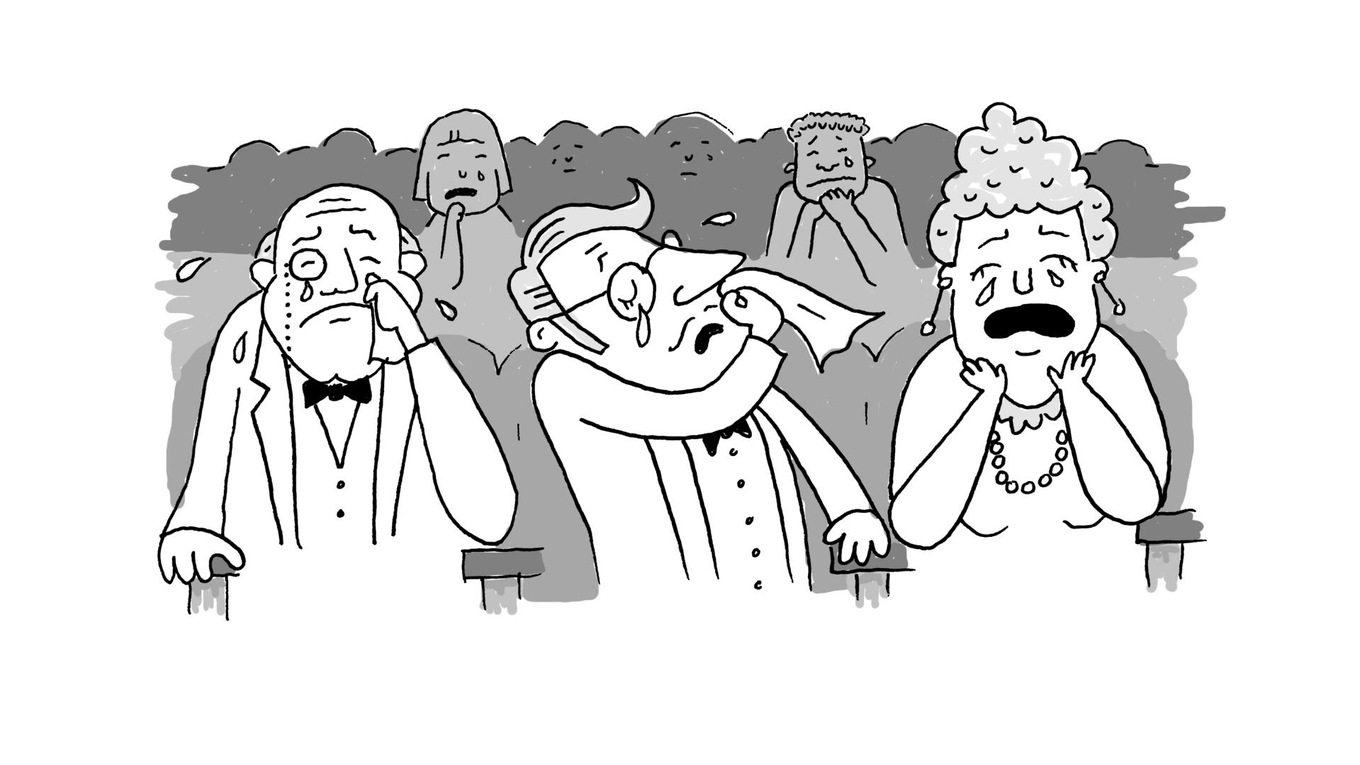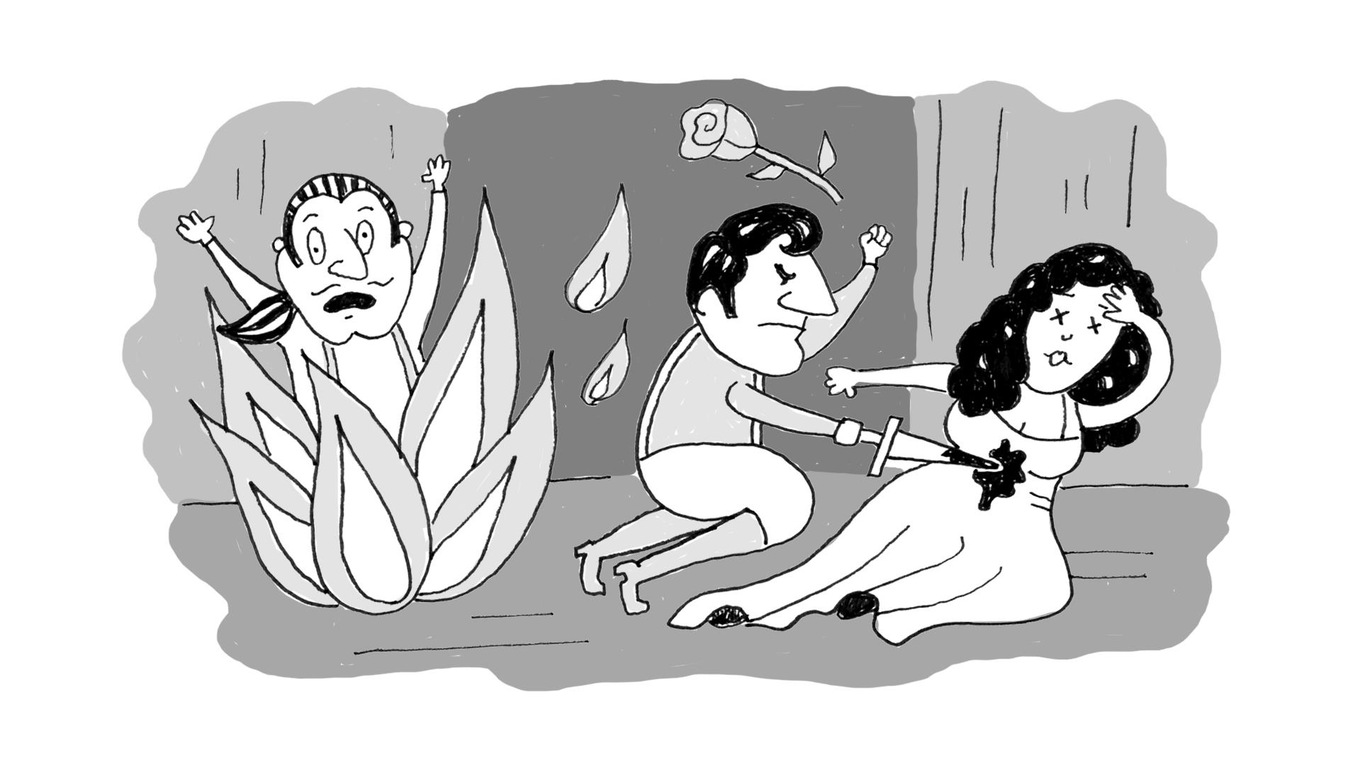"Opera singers come in all shapes, sizes and ages," says soprano Simone Osborne. "We wear jeans, drink coffee, take our dogs for walks, have normal families and lives (outside the theatre), just like everyone else. You have probably shared a subway or streetcar ride with one of us at some point and never known it."
While its practitioners may be standing next to you in the Starbucks lineup, for outsiders, opera still has a reputation for being stilted, old-fashioned — even intimidating.
But is that reputation justified? Not according to Osborne, star of the Canadian Opera Company's production of Donizetti's L'elisir d'amore, opening Oct. 11 at the Four Seasons Centre for the Performing Arts in Toronto.
Despite singing in sold-out, 2,000-seat auditoriums on a regular basis, Osborne has both feet on the ground — the opposite of the capricious "diva" of opera lore, and the perfect person to bust the lingering myths surrounding this centuries-old art form.
We presented her with 13 preconceptions about opera. Below, she sets the record straight.

1. You need to be an expert to enjoy opera
"One hundred per cent false. There are program booklets given to each audience member before the start of the performance. These come complete with a synopsis of the story and often lots of information on the composer of the music, the singers performing and other interesting facts. Skimming the synopsis is nice for some of the more complicated story lines in opera, but for L'elisir d'amore, you won't even need to do that. Just take a seat, relax and enjoy the live experience.
"I didn't know a thing about opera when I attended my first one. I probably couldn't have told you the name of a single opera composer except maybe Mozart. But I walked out of the theatre completely in love with the art form."
2. The singers sound 'weird'
"Opera singers are trained from the very beginning to create sound that can be heard without amplification, over a large orchestra of 30 to 90 instruments. So, while the production of their sound is different from a pop star crooning into a microphone, I wouldn't call their sound 'weird.'
"Opera singers' voices are like fingerprints, in that no two of them are exactly the same. Some are light and bright, others warm and round; some fly up into the atmosphere with high notes Mariah Carey would envy, others have such low tones and depth to their sound that you can almost feel your body shake from the vibrations. You may find that you fall in love with some voices more than others, or even some voice types more than others, and that is totally normal. But if you've heard an 'opera singer' at one point in your life and weren't particularly fond of their sound, that doesn't mean opera isn't for you. It may just be that specific voice wasn't for you."
3. You'll get bored
"OK. So, full disclosure? Some operas are long. Especially for modern, iPhone-carrying, wifi-hounding, YouTube-loving, short-attention-span-possessing audiences (of which I, woefully, count myself a part!)
"However, there is something very special about walking into a beautiful theatre, turning off all of your devices and taking in a live piece of performance art. There is so much to see — from the gorgeous costumes and sets, the huge choruses of people, to the soloists performing vocal pyrotechnics rooted in deep emotion — that may very well move you in a way you didn't know was possible. If you go to the right opera, you won't be bored.
"L'elisir d'amore is a great opera for someone who wants to give opera a go. It's about two hours of beautiful, fun music, with an intermission (to grab a drink, snack or chat about the show with friends) right in the middle."
4. If you don't understand Italian/German/French, forget it
"Not a problem. The majority of the audience around you will be in the same boat. Surtitles are the opera world's version of movie subtitles. They are projected above the stage at every opera. These are the English translations of what the characters are saying. They are easy to follow and — fun fact — they were invented at the COC! You will now find them at every opera house in the world, translating operas into whatever the local language happens to be."
5. You can't applaud until it's over
"Not necessarily true. There are some customs when it comes to showing your appreciation at the opera, but every performance is different. As soloists, we usually have an aria or two over the course of the evening. When these are done well, the audience will often applaud, whistle or even shout 'bravo' (for a man) or 'brava' (for a woman) if they are especially impressed. The same goes for duets, trios and other ensembles that are famous or particularly moving or well sung.
"However, sometimes the action or music continues so quickly that there isn't really a chance to cheer. In that case, feel free to go crazy for the characters you liked during their final bows after the performance. Sometimes, a piece of music may seem to be over, only to continue, or be repeated right away. So a good rule of thumb if you're new to opera is to follow the herd when it comes to applause. Don't be the first one to clap (just in case you unintentionally interrupt an aria or duet), but by all means join in if you hear others around you start to applaud."

'Opera singers are not all horn-wearing chubby ladies.' — Simone Osborne (Heather Collett/CBC)
6. You have to be rich to afford a ticket
"Myth! For example, tickets to the COC shows are as low as $12 for standing room (that's less than a movie ticket!), $22 for opera-goers under 30 years old and start at $50 for regular single tickets. Add to that the COC rush ticket system — with its big discounts on the day of — and free dress rehearsal performances for young audiences, and opera is accessible for everyone. Every opera company prices its tickets differently, but there is always a range, and opportunities for special or discounted rates. Call the box office to find the best option for you."
7. Opera plots are too over-the-top to be relevant today
"Here's the thing about opera: it's not one thing. There are all kinds of operas that tell all kinds of stories. Comedic operas, tragic operas, historical stories, political stories, love stories — the list goes on. So while some plots might be a little far-fetched, they've certainly got nothing on the most over-the-top action or sci-fi movies of today!"
8. Opera is for old people
"Not true. Some of the most rapturous audiences I've performed for were in school gymnasiums — hundreds of kids from ages five to 17. And the COC has a wildly successful young opera patrons circle (called the Opera Club) for upcoming opera die-hards. Opera is for everyone."

9. Opera will make you cry
"Possibly, but in the best way! The power of the human voice, filled with genuine emotion pouring out over a huge orchestra of musicians all playing with great dedication and beauty is something that can take your breath away. It is a reminder of how much human beings are capable of, how universally similar the human experience is, and how deeply moving music can be."
10. You have to wear fancy clothes to attend the opera
"Nope. Wear what makes you feel comfortable. When you come to the opera, there will be a whole range of attire on display. Some choose to get fancy in cocktail dresses and sharp suits; others are much more simple and low key. You may not feel great in an old pair of jeans and sweatshirt — just as you probably wouldn't in a nice restaurant if everyone else is a bit dressier than you — but don't think that you need a tuxedo or a ball gown to go to the opera. Something that is respectful of the beautiful venue you are in is good, but remember that everyone goes to the opera: students, socialites, families, business people and retirees. Do you."

11. Everyone dies
"Definitely not. For instance, in L'elisir d'amore: boy falls for girl; girl is more interested in the new guy in town until she realizes just how right boy No. 1 was all along. There are slapstick comedies and romantic love stories — hundreds of years of stories (and new ones being written all the time!), thousands of characters and something for everyone. Even in the 21st century."
12. Opera singers can't act
"Simply not true. Some opera singers place more importance on the acting part of their craft, but every opera singer knows that becoming a believable character is an important part of the job. This aspect is becoming more and more important as modern audiences expect real drama from the stage. The greatest opera singers today and incredible 'singing actors.' For me personally, becoming another person on the stage is one of my favourite pieces of the puzzle."
13. All opera singers are 'divas'
"The truth is that being an opera singer is very challenging on many fronts. The physical demands of singing over a huge orchestra for every performance; the concentration and brain power it takes to learn and memorize two to three hours of music in Italian, German, French or even Russian; running all over the stage in heavy costumes and wigs while watching the conductor to be sure you are lining up with the orchestra — all the while knowing that a lot of people are depending on your voice to send thousands of audience members home happy. It all makes for very high stakes.
"Add to this, the fact that if we catch a little cold or get caught in the middle of an allergy season, our voices may simply not work the way we need them to, and if we force them in any way, we may do irreparable damage. I'm surprised more of us aren't completely insane! Yes, there are some singers who can be difficult to work with. But that is a fading trend, and is usually a product of all the pressure and high expectations placed upon them. However, 90 per cent of the singers I know are lovely people inside and out. Even most of the big international stars know what they need in order to do a great job, but they treat people with respect while asking for it and are kind and generous human beings."
Catch Osborne singing the role of Adina in the COC's production of Donizetti's L'elisir d'amore, opening Oct. 11. Performances take place at Toronto's Four Seasons Centre for the Performing Arts. Full details here.
More to explore:
10 opera singers making Canada proud in 2017-18
Wallis Giunta: 5 pieces that changed my life
9 amazing covers of Franz Scubert songs

Hand-selected opera gems by the most celebrated dramatic tenor in the world, Ben Heppner. The most familiar arias from the most-loved operas of all time along with opera overtures, intermezzi and choruses. Performances combine the great voices of the 20th century with today's rising stars!
